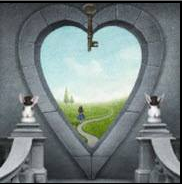Today, a statement made by a woman I mentor shocked me into silence. It also made me realize how devastating and emotionally defeating depression is as a mental illness. No wonder Robin Williams chose to take his life rather than continue in a state of illness he felt was incurable. His lonely death left us with many unanswered questions.
However, according to The World Health Organization (WHO) statistics, Robin Williams was not alone because mental illness is very common. One in five Americans aged 16-85 experience some form of mental illness in any year. According to WHO, lifetime prevalence rates for any kind of psychological disorder are higher than previously thought.
This may be because people suffering from psychological disorders tend to keep them a secret either out of shame, fear, or their inability to communicate their symptoms to practitioners. These disorders are increasing in recent cohorts and affect nearly half the population. Suicide is among the top 20 leading causes of death globally for all ages.
Every year, over 800.000 people die from suicide. This is an alarming statistic.
One in two people or half the population in the world will suffer from some form of mental illness in their lifetime. One in three people will come down with some form of cancer in their lifetime. More people will have mental illness than cancer.
The most common mental illnesses are depressive, anxiety and substance use disorder. These three types of mental illnesses often occur in combination. For example, a person with an anxiety disorder could also develop depression, or a person with depression might misuse alcohol or other drugs, in an effort to self-medicate.
A third combination would be incompatible pharmaceuticals that exacerbate mental illness during treatment for a physical illness. This was brought to my attention by the following story.
As an R.A. Bloch Cancer Foundation Hotline Counselor, I mentor woman newly diagnosed with cancer who seek help through the HOTLINE’s center by calling 1-800-433-0464. The conversation I had today saddened me beyond words.
A woman recently diagnosed with stage 4 triple-negative breast cancer, a formidable form of cancer, shared her sad story:
“I was just released from a week long stay in the hospital after trying to commit suicide. I could not help myself. I have been dealing with severe depression most of my adult life and the Adriamycin/Cytoxan chemotherapy I began taking two months ago made it worse. My husband found me unconscious in the morning after I had swallowed seventy-five pills during the night when I got up to use the bathroom. I don’t remember doing that. I always remembered trying to kill myself before. This time I had no memory of it. ”
This was chemo-brain in action. Chemo-brain is a result of the chemotherapy on brain synapses and memory. It is described in my book, Surviving Cancerland: Intuitive Aspects of Healing in chapter 31, Sex, Drugs & Rock & Roll.
I asked her if she had attempted suicide because she felt she could not recover from the triple negative stage-four breast cancer.
“Oh, no. I know cancer is curable. Depression is not. And I don’t want to live depressed anymore.”
That statement made me realize just how depressing depression truly is. When a patient facing advanced aggressive cancer is not afraid to die with cancer but afraid to live with depression, something needs to be done about how our society tackles BOTH illnesses because cancer treatment often triggers deep depression in patients who do not have a history of mental illness.
Imagine what it does to those who are already battling it when the chemotherapy cocktail of pharmaceuticals mix with anti-depression medications.
The result is an emotional roller-coaster-ride beyond comprehension. This CancerLand ride is the focus of chapter 33 in my book. If you are already prone to depression, or perhaps you are taking anti-depression medication or ever took medication for depression and are facing cancer treatment, here are 7 things you can do to survive depression while getting well.
- Tell your oncologist about your previous experiences with depression, even if they are no longer an issue in your life.
- Ask your oncology medical team for the name of a psychiatrist at your treatment center so that everyone can be informed about your emotional progress during treatment.
- Journal your emotional journey during treatment to help you be aware of your progress during times of depression. This can be a light at the end of the tunnel.
- Share your journal with your therapist or psychologist so they can monitor your emotions and watch for “red flags” or troubling behaviors before they become a dire situation. Creating an online journal will be easy to email to your therapist.
- Most depression during treatment occurs five to seven days after chemotherapy. Do not be alone during those times. If you do not have someone to stay with, be sure to check in with your therapist often.
- Have a family member or friend remove or hide all dangerous pharmaceuticals that you are not currently taking from your home during treatment.
- Stay connected to your Higher-Power and belief system through dreams, prayers and meditation. This can be a guiding light in your hours of darkness.
Cancer AND depression are curable. Some medical practitioners prefer to say that cancer patients, after successfully completing treatment are in remission. They believe that with proper lifestyle adjustments that include a healthy diet and outlook on life, the cancer will remain in remission. Others prefer to say, “You’re cured!” The same holds true for depression. The treatment regimen of finding medications that work at proper doses may not be easy, but the alternative is less so.
After surviving cancer three times, 15 and 10 years ago respectively I always say, “I’m cured.”
Join me and celebrate life.
In part 2 of this article titled Surviving Cancer & Depression: 4 Steps to Success we will discuss ways to survive cancer and depression.
BIO: Kathleen O’Keefe-Kanavos believes dreams diagnose your life. Did you have a déjà-vu or did your dream come true? Kat survived three cancers diagnosed by her dreams. International bestselling author, inspirational speaker, radio-host, columnist, blogger, Cancer Hotline Counselor; she has been featured on radio and TV, in magazines and newspapers, SURVIVING CANCERLAND: Intuitive Aspects of Healing is the first in her three book series on waking up to healing dreams. Kat taught Special Education and Psychology at (USF) University of South Florida. www.AccessYourInnerGuide.com www.SurvivingCancerLand.com












